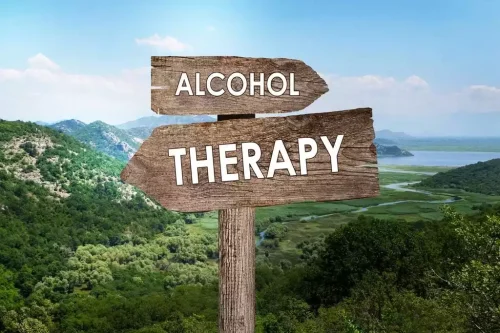They can help identify and treat any underlying issues that could increase your risk of relapse. They also provide counseling services to teach healthier coping strategies for stress and negative emotions. There are different models and techniques to include in your relapse prevention plan. They’re based on building your knowledge and skills to combat substance use.
Strategies for Managing Relapse Triggers
https://ecosoberhouse.com/ treatment duration varies based on individual needs but often spans 12 to 20 sessions, each lasting about an hour. Sessions occur weekly at first and then may taper off to biweekly or monthly. During these sessions, therapists teach coping skills, identify triggers, and develop strategies to prevent relapse. MBRP integrates mindfulness practices with a cognitive-behavioral approach to help individuals develop awareness of cravings without reacting spontaneously.
Monitoring And Adjusting The Plan
- By proactively addressing emotional turmoil, you can maintain your sobriety and continue on your recovery journey.
- Emotional turmoil is a set of intense emotions such as sadness, depression, and anger, which can be a trigger for an emotional relapse.
- Individuals who stay in addiction treatment for a longer period of time (90 days or more) are more likely to maintain their sobriety in the long run.
- Clinical experience shows that when clients feel they cannot be completely honest, it is a sign of emotional relapse.
- Recovery from drug and alcohol addiction can be a long and challenging process.
Mindfulness and meditation are about being present and paying attention to what’s happening without judgment. Getting caught up in those thoughts and feelings is easy when craving something. But mindfulness can help you step back and observe those cravings without getting swept away. A support system may include friends, family members, relapse prevention or support groups who understand what you’re going through and can offer encouragement, advice, and accountability. Building a strong support system can help you stay motivated and resilient on your journey to change. Besides signing up for recovery programs, keeping track of your progress is also integral to maintaining sobriety.
- Additionally, the revised model has generated enthusiasm among researchers and clinicians who have observed these processes in their data and their clients [122,123].
- When people face situations where they used to drink or use drugs, they may find it challenging to struggle with the need to engage in old habits.
- 12-step programs, such as Alcoholics Anonymous (AA), Cocaine Anonymous (CA), and Narcotics Anonymous (NA), provide additional guidance and support for people in recovery.
- Try to brainstorm a list of scenarios that could lead to potential relapse and list the warning signs of relapse.
What’s Included in a Relapse Prevention Plan

Deep breathing, and the resulting increased oxygen flow, also encourages your body to exhale toxins. Take four deep breaths in through your nose and hold, then release for four seconds. Deep breathing is an excellent relapse prevention technique because it can be utilized virtually anywhere without anyone knowing you’re doing it.


However, it does not have to be when you are fully prepared with a toolbox of healthy coping strategies. Implementing these relapse prevention techniques into your daily schedule can greatly help reduce the risk of relapse. Contact a dedicated treatment provider to learn more about inpatient or outpatient treatment programs to learn more relapse prevention skills and get help today. In one study of treatment-seeking methamphetamine users [132], researchers examined fMRI activation during a decision-making task and obtained information on relapse over one year later.
Moderation analyses suggested that RP was consistently efficacious across treatment modalities (individual vs. group) and settings (inpatient vs. outpatient)22. Cognitive distortions are illogical thoughts or beliefs that can disrupt recovery efforts. They can lead individuals to justify substance use disorder (SUD) or minimize its consequences.
- For instance, Muraven [81] conducted a study in which participants were randomly assigned to practice small acts self-control acts on a daily basis for two weeks prior to a smoking cessation attempt.
- Most studies of relapse rely on statistical methods that assume continuous linear relationships, but these methods may be inadequate for studying a behavior characterized by discontinuity and abrupt changes [33].
- The findings reveal, in short, that individuals who have experienced trauma are more susceptible to relapse, underscoring the importance of addressing trauma in addiction treatment.
- The Verified badge on our articles is a trusted sign of the most comprehensive scientifically-based medical content.If you have any concern that our content is inaccurate or it should be updated, please let our team know at [email protected].
- Knowing and understanding them can help you avoid relapses during recovery.
- Many triggers can come from environmental, mental, and emotional sources.
Systematic reviews and large-scale treatment outcome studies

